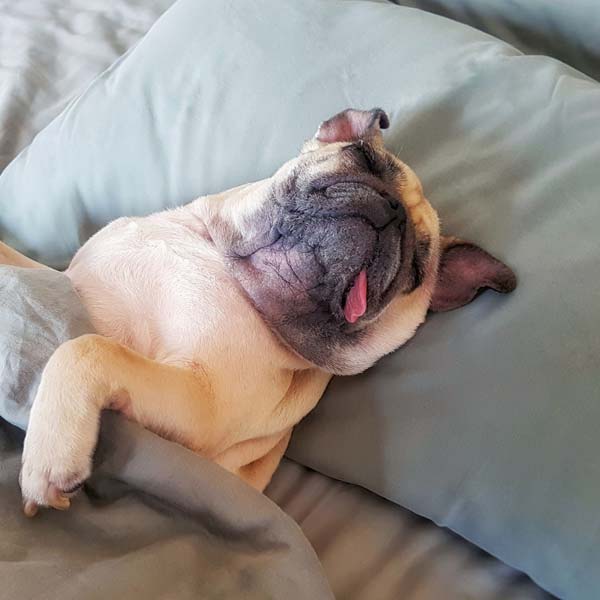Dogs are our loyal and beloved companions, and it’s not uncommon for us to notice that they snore when they sleep. While snoring may seem harmless, it could indicate an underlying issue that needs attention. In this article, we will delve into the reasons why dogs snore and provide some possible solutions to help your furry friend breathe more comfortably.

1. Breed
First and foremost, breed plays a significant role in whether or not your dog will snore. Breeds such as pugs, bulldogs, and boxers are known to be more prone to snoring due to their short snouts and flat faces. These breeds often have narrow nostrils and a soft palate that obstructs the airway, making it harder for them to breathe during sleep.
2. Allergies
Allergies can also lead to snoring in dogs. If your dog is sensitive to environmental factors like dust, pollen, or mold, their airways may become inflamed, causing them to snore. This can be particularly problematic if your dog has seasonal allergies, as snoring can worsen during certain times of the year.
3. Obesity
Obesity is another leading cause of snoring in dogs. When a dog carries excess weight, it puts added pressure on their airway, making it harder for them to breathe. As a result, they may snore more frequently or loudly. If you suspect that your dog is overweight, it’s important to speak to your veterinarian about a diet and exercise plan.

4. Sleeping Position
Finally, your dog’s sleeping position can also contribute to snoring. If they sleep on their back or in a curled-up position, it can cause the tongue to fall back and obstruct the airway. Encouraging your dog to sleep on their side may help reduce snoring.
5. Solutions
If you notice that your dog is snoring more than usual, it’s important to speak to your veterinarian. They can help determine the underlying cause and provide the appropriate treatment. In some cases, a simple change in sleeping position or weight loss can make a significant difference.
For dogs with allergies, antihistamines or steroids may be prescribed to reduce inflammation and alleviate snoring. Surgery may also be an option for dogs with anatomical issues like a soft palate that obstructs their airway.

In conclusion, snoring in dogs can be caused by various factors, including breed, allergies, obesity, and sleeping position. While snoring may seem harmless, it can indicate an underlying issue that needs attention. By speaking to your veterinarian and addressing the root cause, you can help your furry friend breathe more comfortably and sleep soundly.
